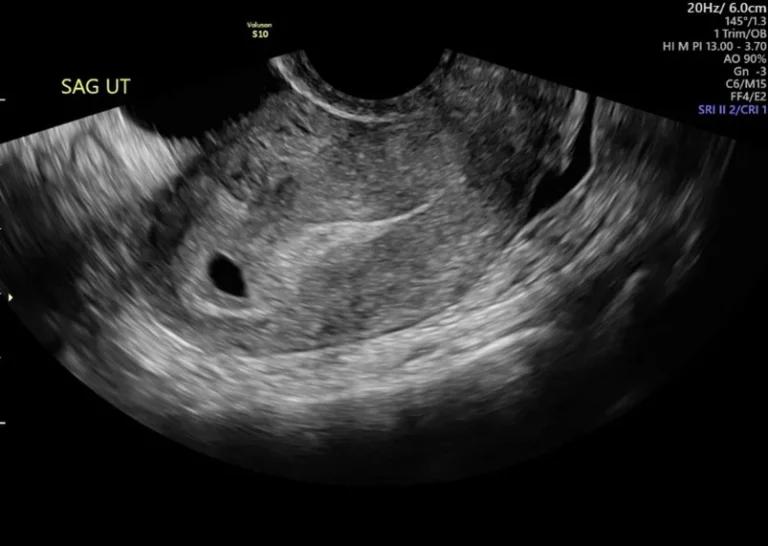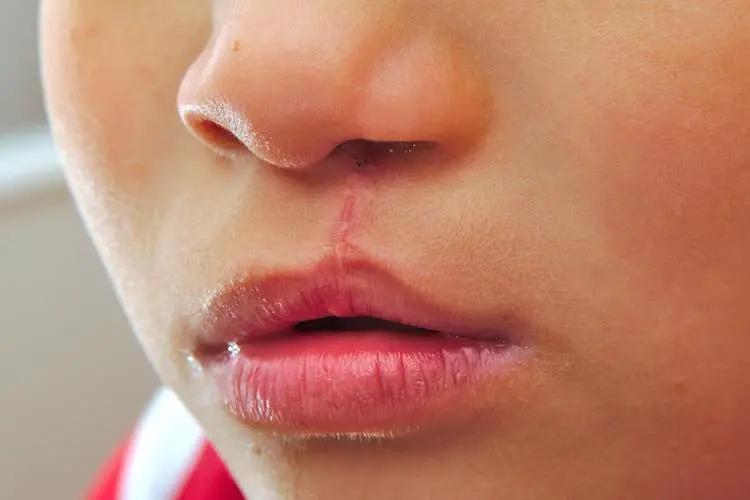A cleft lip and cleft palate is the most common birth defect also known as a craniofacial abnormality which babies can be born with. It results in a cleft (a gap or split) in the upper lip or the roof of the mouth (affecting the soft palate or hard palate). The gap is appears because parts of the baby’s face did not fuse together properly during early pregnancy development in the womb. Having a baby born with a cleft can be upsetting but reconstructive surgical repair can correct cleft lip and cleft palate. Lets take a look at how it can be diagnosed.
How are cleft lip and cleft palate diagnosed?
Prenatal ultrasound
Cleft lip and palate may sometimes be detected using ultrasound scans during pregnancy. This scan is usually done at between 18 and 22 weeks of pregnancy. Cleft lip detection is easier to identify because of the visible physical changes in the baby’s face. A cleft palate alone (without a cleft lip) is sometimes challenging to see.
If detected, parents are counselled regarding the condition and the family may also be referred for genetic counselling and other tests. At this stage your healthcare provider may recommend amniocentesis to check for associated genetic conditions. Amniocentesis is a procedure to remove amniotic fluid from the amniotic sac.
Also, families with a history of cleft palates should seek genetic counselling to determine their risks for giving birth to a child with a cleft palate.
At birth
If an ultrasound doesn’t detect a cleft before birth, a physical exam of the mouth, nose and palate can diagnose cleft lip or cleft palate after birth. When a cleft lip or palate is diagnosed, you’ll be referred to a specialist NHS cleft team consisting of professionals such as:
- Orthodontists
- Plastic surgeons
- Otolaryngologists
- Speech and language therapists
- Dentists
- Audiologists
- Paediatricians
- Nutritionist
- Psychologist/social workers
📝 What is a cleft lip & palate?
A cleft is a gap created when the different parts of a baby’s face don’t fully join together in the womb. It is a condition which someone is born with.
Cleft lip
A cleft lip is a gap in the upper lip. It can affect one side, both sides of the lip or the middle. This can range from a small notch to a total separation of the upper lip, which can extend up to the nose.
A cleft palate is a gap in the roof of the mouth. It can affect some or all of the soft palate (the back of the mouth) and may extend into some or all of the hard palate (the bony front portion of the roof of the mouth). Clefts of the lip and palate can occur separately or together.
Cleft lips and palates occur during early pregnancy. Around the fifth or sixth week of pregnancy the lips join and around the seventh or eight week the palate joins. This joining process may fail completely or stop at any point, resulting in a cleft.
Different types of cleft
Cleft lip and cleft palate may look like:
- A split in the lip and palate that affects one (unilateral cleft) or both sides (bilateral cleft) of the face
- A split in the lip that appears as only a small notch in the lip or extends from the lip through the upper gum and palate into the bottom of the nose
- A split in the roof of the mouth that doesn’t affect how the face looks
📝 What kind of problems do cleft lip and palate cause?
- Ear infections and hearing loss. Ear infections are often due to problems with the tube that connects the middle ear and the throat. A build-up of fluid in the ears (glue ear) can also lead to hearing problems
- Feeding difficulties. Feeding difficulties occur more with cleft palate abnormalities. The infant may be unable to suck properly because the roof of the mouth is not fully formed
- Speech problems. Muscle function may be reduced due to the opening of the roof of the mouth and the lip, leading to a delay in language development. Speech therapy may be recommended
- Dental problems. The abnormalities around the mouth may lead to teeth not developing normally, orthodontic treatment may be required
📝 What is the main cause of cleft lip and palate?
The exact reason why this happens to some babies is often unclear but here are some possible risk factors:
Genes
Having a family history of cleft lip or palate increases the chance of your child having this condition. A healthcare professional may refer you to a genetic counsellor who can help figure out your risk of having children with cleft lip and cleft palate in the future.
Genetic syndromes
Cleft lip or palate are found in more than 400 syndromes, including Pierre Robin and Down syndromes. Approximately 30 percent of cleft defects are associated with a genetic syndrome.
Environmental factors
There are things that can happen just before or during pregnancy:
- Taking medication. Certain medications such as anti seizure drugs, some acne treatments and methotrexate, a drug commonly used for treating cancer, arthritis and psoriasis can increase the risk of cleft lip and palate
- Smoking
- Health conditions such as diabetes, obesity, folic acid deficiency
- Exposure to certain viruses or chemicals during pregnancy
Can a cleft lip and palate be prevented?
There are steps you can take to lower your risk of having a baby with a birth defect:
Take folic acid
Folic acid is a vitamin that every cell in your body needs for healthy growth and development. It is also known as vitamin B9 and is present is various foods such as:
- Dark leafy vegetables
- Lentils and beans
- Oranges and orange juice
- Wholegrain foods
- Chicken, shellfish and liver
- Fortified foods with added folic acid, including some brands of breakfast cereals
It is already commonly known that folic acid is a prenatal vitamin that reduces the risk of neural tube defects, such as spina bifida, during the first trimester of pregnancy.
A study published in the British Medical Journal found that women who take folic acid supplementation of 400 micrograms or more per day reduced the risk by one third, for a baby developing cleft lip with or without cleft palate. This shows how important a mother’s nutrition is during pregnancy. It is clearly an environmental factor that can affect the health of a growing baby.
Taking a folic acid supplement is the best way to get the recommended amount of 400 micrograms, which is ten times more folate needed than a non-pregnant woman. It’s unlikely that you would be able to have this much through diet alone.
Lose weight before pregnancy
It is ideal to get to a healthy weight before you get pregnant. Discuss with your health care provider about the right weight for you. Being overweight or obese during pregnancy can cause problems for you and your baby. Talk to your doctor about how much weight you can gain during pregnancy.
Stop smoking
Smoking during pregnancy increases the risk of having a baby with health problems at birth. It can cause early labour, premature births, low birth weight and birth defects such as cleft lip and other health problems. Quitting smoking, even if you’re already pregnant can make a big difference in your baby’s life.
Stop drinking alcohol
Drinking alcohol during pregnancy makes it more likely to have a premature birth, birth defects and fetal alcohol spectrum disorders. Alcohol passes directly from your body to your baby’s and can cause serious health problems for your baby.
Get your diabetes under control
If you have diabetes plan your pregnancy, as it is important to get your diabetes under control 3 to 6 months before you get pregnant. Managing diabetes when pregnant requires extra attention and care. You’ll need extra prenatal care check-ups so your provider can make sure you and your baby are doing well.
Untreated or uncontrolled diabetes increases your risk for pregnancy complications, like high blood pressure, depression, preterm birth, birth defects and pregnancy loss.
Discuss your anti-seizure medication with your healthcare provider
Pregnant mothers with epilepsy have an increased risk of babies with a cleft lips and palate. Discuss the possibility of reducing the number of medicines or your dose with your doctor.
🏥 Treatment
Surgery for cleft palate repair
Surgery can treat both cleft lip and cleft palate, but as every cleft is unique treatment depends on the extent of the cleft, the child’s age and any health conditions.
Cleft lip repair usually occurs in the first few months of life. It is recommended within the first 12 months of life.
Cleft palate surgery is recommended within the first 18 months of life. This is a more complicated surgery and it is done when the baby is slightly older and can tolerate the surgery.
Additional operations may be recommended based on your child’s anatomy. Many children will need surgical procedures as they get older such as an alveolar bone graft for children with cleft lip at 8-10 years old to improve bite and jaw function. Children who have undergone a cleft palate repair may need a second operation around 4-6 years to address nasal sounding speech. This operation is called a pharyngeal flap.
Conclusion
A cleft lip and cleft palate may be seen at birth or may be found by ultrasound before birth. With the help of a multidisciplinary healthcare team challenges can be effectively managed. CLAPA (Cleft Lip and Palate Association) offers support and advice to parents and children affected by cleft lip and palate.
Sources
- Cleft lip and palate – NHS
- Cleft lip and cleft palate – Diagnosis and treatment – Mayo Clinic
- Cleft Lip/Cleft Palate – Birth Defects – CDC
- Cleft Lip & Cleft Palate: Causes & Treatment
- Use of folic acid supplements and risk of cleft lip and palate in infants: a population-based cohort study – PMC
Medical Disclaimer
NowPatient has taken all reasonable steps to ensure that all material is factually accurate, complete, and current. However, the knowledge and experience of a qualified healthcare professional should always be sought after instead of using the information on this page. Before taking any drug, you should always speak to your doctor or another qualified healthcare provider.
The information provided here about medications is subject to change and is not meant to include all uses, precautions, warnings, directions, drug interactions, allergic reactions, or negative effects. The absence of warnings or other information for a particular medication does not imply that the medication or medication combination is appropriate for all patients or for all possible purposes.








